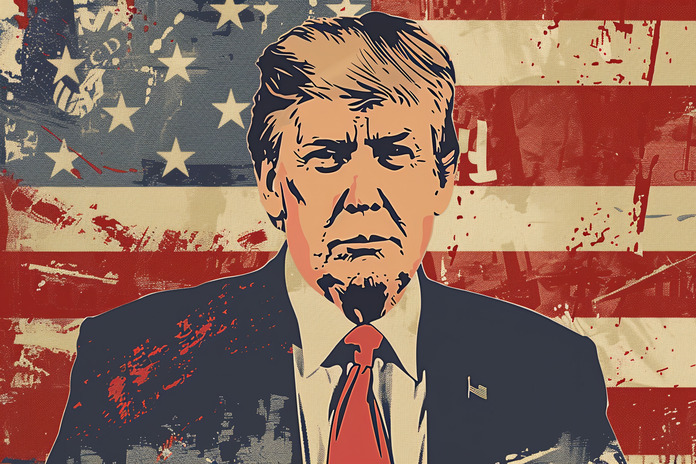This post was originally published on this site

The Trump campaign has made headlines by raising over $4 million in cryptocurrency for its 2024 campaign, with the majority of funds coming in Bitcoin. This development marks a significant shift in political fundraising, highlighting the increasing acceptance of cryptocurrencies in mainstream finance and politics.
Cryptocurrency in Political Campaigns
Cryptocurrency has been gaining traction in various sectors, and its entry into political fundraising is a noteworthy milestone. The Trump campaign’s decision to accept Bitcoin and other cryptocurrencies represents a modern approach to campaign finance, reflecting broader trends in the financial world.
The ability to accept and process crypto donations offers several advantages. It allows for faster and potentially more secure transactions compared to traditional methods. Additionally, it opens up a new avenue for supporters who prefer using digital assets. This move is likely to influence other campaigns to consider similar strategies, further integrating cryptocurrencies into the political landscape.
Breakdown of Trump Campaign Crypto Donations
According to a recent report, the Trump campaign raised over $4 million through cryptocurrency donations, with Bitcoin being the predominant digital asset used. This influx of crypto donations is seen as a testament to the growing popularity and acceptance of cryptocurrencies among a diverse group of supporters.
The funds raised through these donations will be used to support various aspects of the campaign, including advertising, event organization, and voter outreach programs. The campaign’s use of cryptocurrencies also highlights a strategic approach to tapping into new and potentially lucrative fundraising channels.
Implications for Future Campaigns
The Trump campaign’s successful integration of cryptocurrency donations sets a precedent for future political campaigns. As digital currencies continue to gain legitimacy and widespread use, it is expected that more political entities will adopt similar fundraising methods.
This shift towards accepting cryptocurrencies could also lead to changes in regulatory frameworks governing political donations. Current regulations may need to be updated to address the unique characteristics of digital assets and ensure transparency and accountability in campaign finance.
Cryptocurrency: A Double-Edged Sword
While the use of cryptocurrencies in political campaigns presents many benefits, it also poses certain challenges. The decentralized and pseudonymous nature of digital currencies can make it difficult to trace the origins of donations, potentially leading to concerns about illegal contributions and money laundering.
To mitigate these risks, campaigns must implement robust compliance measures, including thorough verification processes for donors and adherence to existing financial regulations. By doing so, they can harness the benefits of cryptocurrency while maintaining the integrity of their fundraising efforts.
Expert Opinions on Trump Campaign Crypto Fundraising
Several financial experts and political analysts have weighed in on the implications of the Trump campaign’s use of cryptocurrencies. Many view it as a forward-thinking move that aligns with current technological trends and the evolving landscape of financial transactions.
However, some experts caution that the integration of cryptocurrencies into political fundraising must be carefully managed to prevent misuse and ensure transparency. They emphasize the importance of developing clear guidelines and regulatory frameworks to govern the use of digital assets in political campaigns.
Conclusion
The Trump campaign’s $4 million fundraising haul in cryptocurrency marks a significant milestone in the intersection of politics and digital finance. This innovative approach not only demonstrates the growing acceptance of cryptocurrencies but also sets the stage for future political campaigns to explore new fundraising avenues.
As the use of digital currencies becomes more prevalent, it is crucial for campaigns to implement robust compliance measures and for regulators to develop appropriate frameworks to oversee these transactions. By doing so, they can leverage the benefits of cryptocurrencies while maintaining the integrity and transparency of the political process.
Featured Image: Freepik © hoaixuanboss
